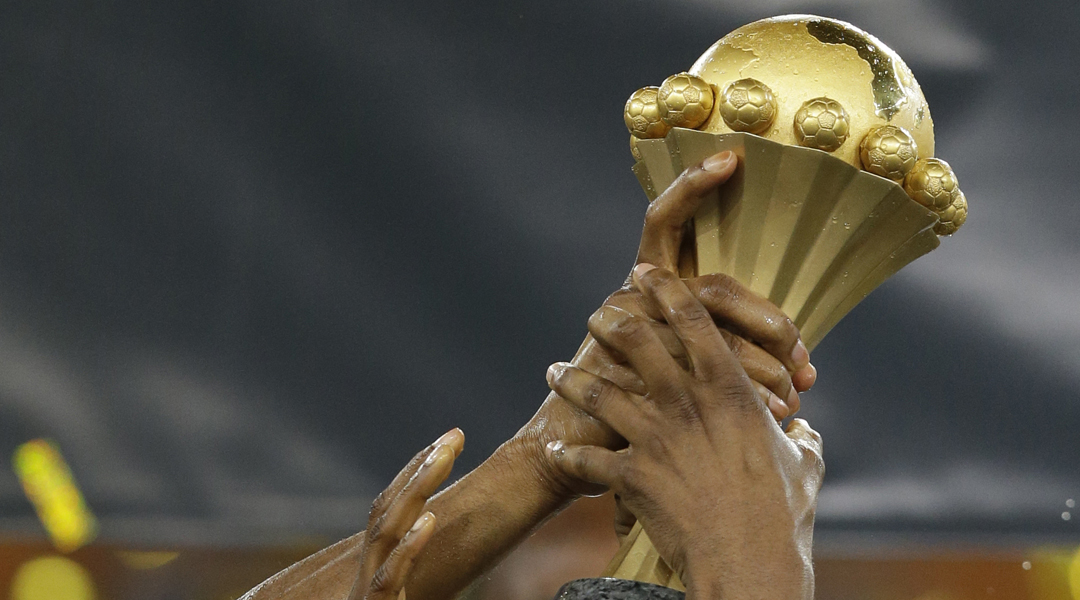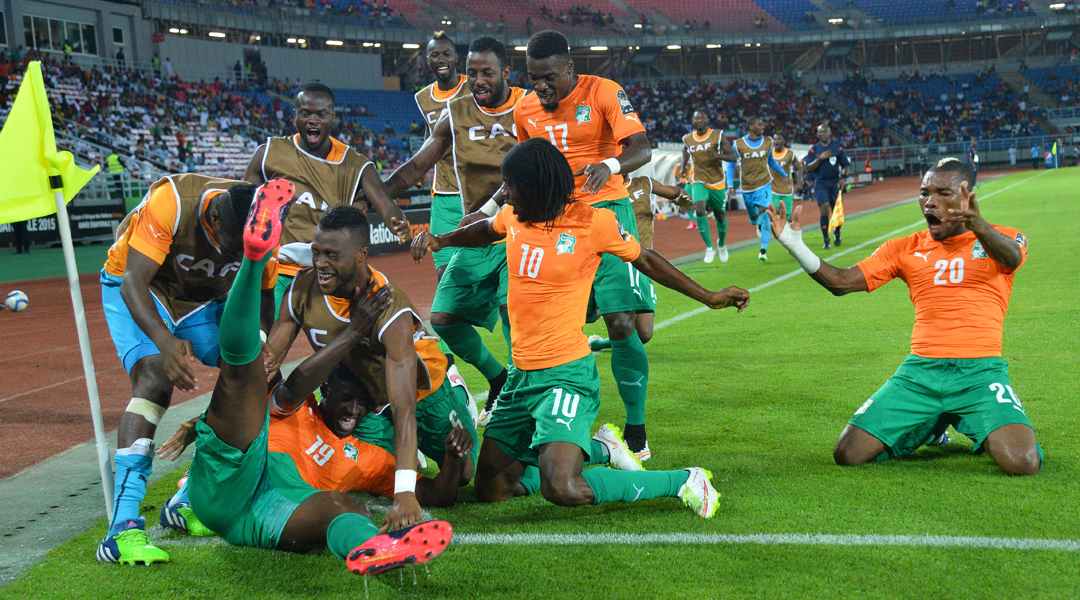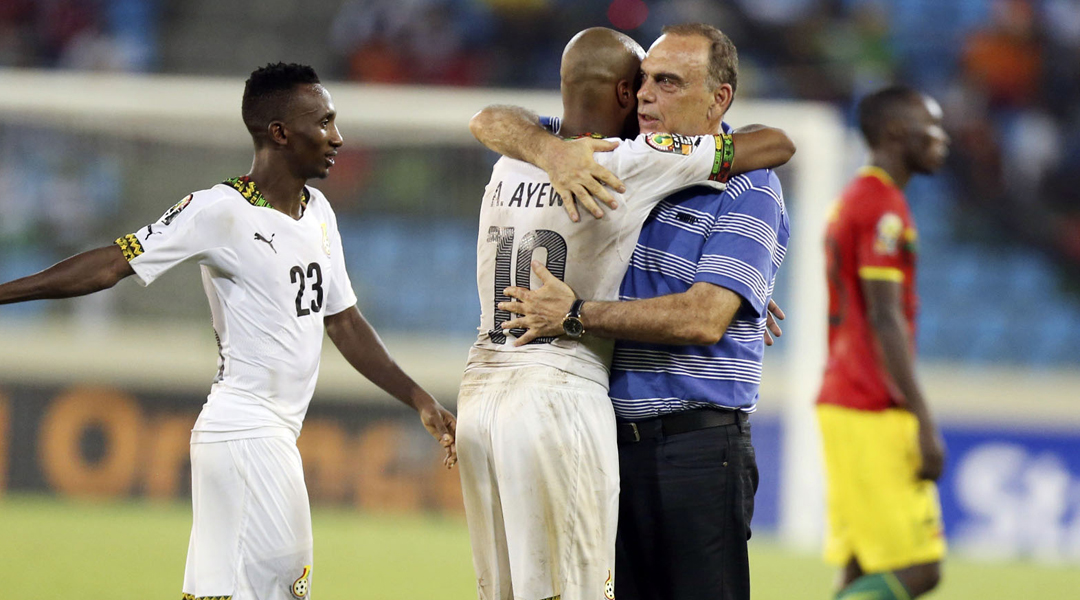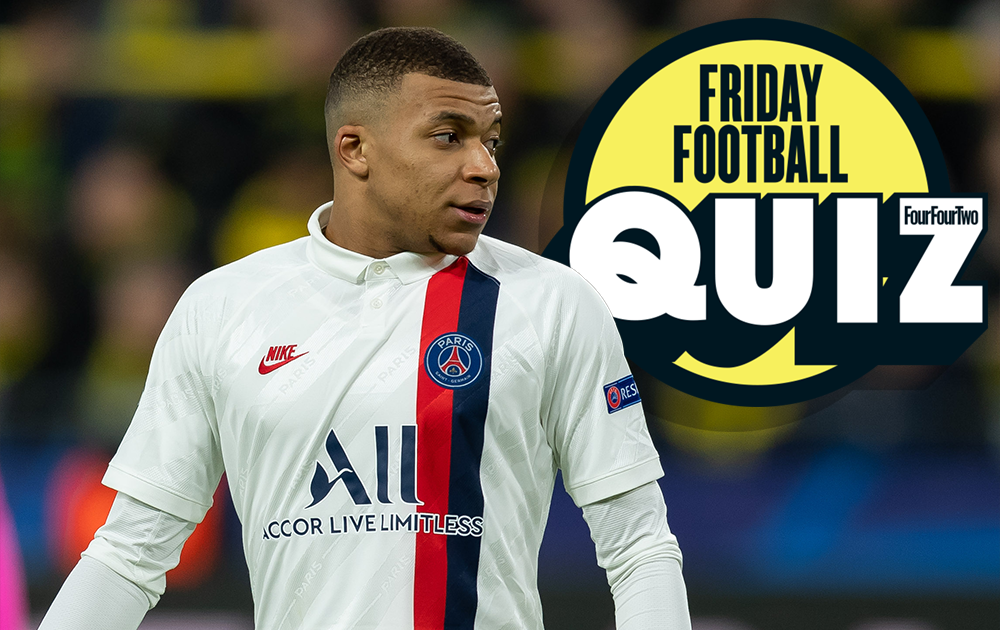Lowered expectations have helped Ivory Coast and Ghana get this far – but who will blink first?
Sam Crocker looks ahead to Sunday's Africa Cup of Nations final, as the Elephants prepare to face the Black Stars...

Coming into this tournament, they were nothing but a laughing stock. They were a basket case; a team renowned for its regular blunders at the back, and a history littered with the corpses of squads from previous tournaments after once again falling short of the mark. But, with the pressure valve released, Ivory Coast are a new beast – and ready to take advantage of their place in the final of the AFCON 2015.
After all the trials and tribulation the team has endured, for this to be the year that they finally end their long wait for an AFCON title seems bizarre. It has been 23 years since they last lifted the continental crown, when they hosted the tournament in 1992. An expected decade of dominance failed to materialise, creating a savage mental block of the supposed “golden generation”.
With two runners-up spots, a semi-final and two quarter-final finishes, Ivory Coast's story at the Africa Cup of Nations is a well-documented one. A squad made up of some of the finest players on the continent just couldn't lift the trophy, as their regular failure culminated in immense distress for the players. Now, a victory in the final of this tournament has the potential to prove an antidote.
Herve's house
Pre-tournament expectations for Les Elephants could not have been more different this time round. After their World Cup group stage exit in Brazil, in which the conceding of a last-minute penalty against Greece added to their collective trauma, the squad that had lived through the bad times eventually started to be trimmed. Didier Drogba and Didier Zokora retired, as the defensive calamities which had been a regular feature of their time in the upper echelons of African football continued to be blindingly obvious.

The resignation of Sabri Lamouchi promptly followed, as the Ivorian Federation went in search of the next man to take on the poisoned chalice. They dodged a Giovanni Trapattoni-shaped bullet to hire Herve Renard, the man who inflicted their greatest trauma of all when his Zambia side beat them on penalties in the 2012 final.
But things had not seemed to change during qualifying. Despite Renard's penchant for instilling discipline into his backline and building from there, they continued their high-octane, neutral-friendly football, where the number of goals conceded was never far behind the astronomical number they scored. When they arrived in Equatorial Guinea, however, it clicked.
Get FourFourTwo Newsletter
The best features, fun and footballing quizzes, straight to your inbox every week.
Gone were the air-kicks; the chaotic clearances; the vast distances between members of the backline. Suddenly, seemingly out of nowhere, they had become compact, organised and strong.
A three-man defence was installed, with Kolo Toure marshalling young centre-backs Eric Bailly and Wilfried Kanon – neither of whom had played a competitive match for their country before this tournament – during some stout performances.
A lot of praise has to be heaped on Renard. After masterminding the miraculous Zambia victory in 2012, he has got this Ivory Coast side playing exactly how his old side did, aiming to frustrate the opposition and hit the them on the break. While the host of attacking talents they have at their disposal may make this seem a negative tactic, it has turned out to be devilishly effective. They saw off favourites Algeria in the quarter-final despite the barrage they received from one of the best attacking sides on the continent.

Topsy-turvey tournament
Indeed, the final pairing of Ivory Coast and Ghana is a microcosm of what a bizarre tournament this has been in terms of expectations. African football rarely follows the script in the first place, having become renowned for its refusal to allow the top teams to triumph and willingness for the minnows to flourish. A remarkable number of the top teams failed to qualify for the 2012 edition, and while the majority of the big-wigs reached Equatorial Guinea this time round, the holders Nigeria missed out.
But this tournament has been something else. Group A was turned upside down, with Burkina Faso and Gabon going out and Congo and Equatorial Guinea going through. DR Congo wriggled out of Group B to the semi-final, despite being highly unfancied, while in-form Cameroon were ousted by open-all-hours Ivory Coast and Guinea – the latter going through on the drawing of lots. Any pre-tournament tree diagrams tracking the progress of each team were promptly tossed out the window.
Ghana wormed their way through Group C with a drizzle of average football, playing about 45 minutes of decent stuff up until the semis – that being the second half of their group stage game against South Africa. The semi-final 3-0 win over Equatorial Guinea was nonetheless impressive, having managed a thoroughly professional display by refusing to be ousted by the hosts and ignoring the chaos going on around them.
Marred by pre-tournament pessimism, the Ghanaians are not all that different from the Ivorians. This has been the tournament people seemed to give up believing in. Avram Grant's appointment hardly inspired, but somehow they've managed to get to the final, clearly benefiting from the release of expectation.
Now Ivory Coast and Ghana are one match away from reigning supreme in Africa at last – in the year that no one believed in their chances for once.
Watch every match of the Africa Cup of Nations LIVE on British Eurosport HD or sign up to Eurosport Player and follow the action on mobile, tablet and other devices: www.eurosportplayer.com
